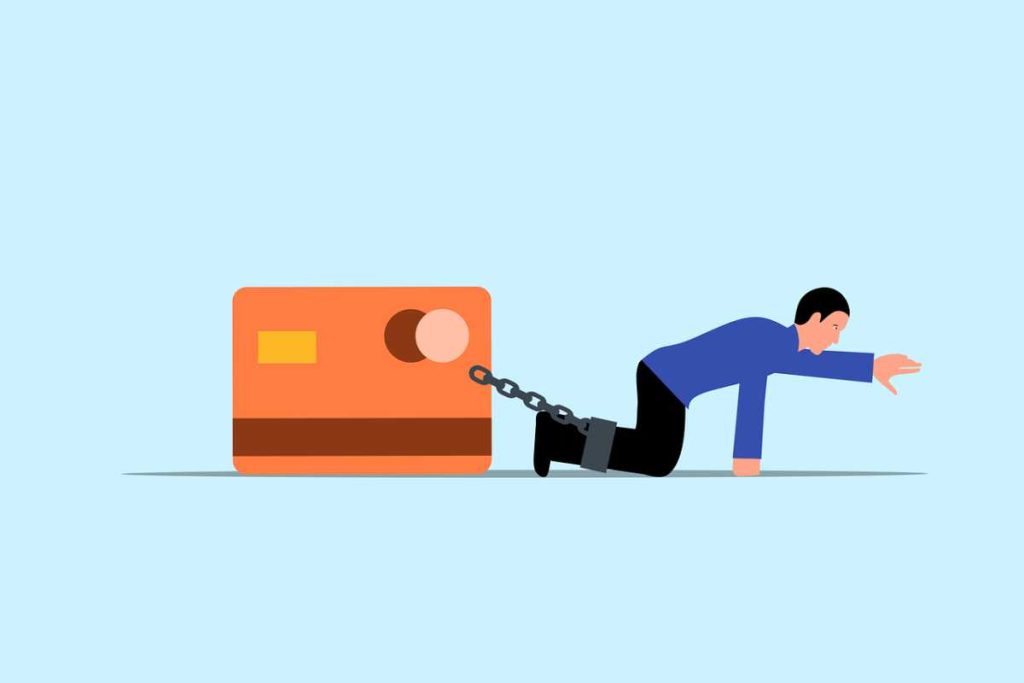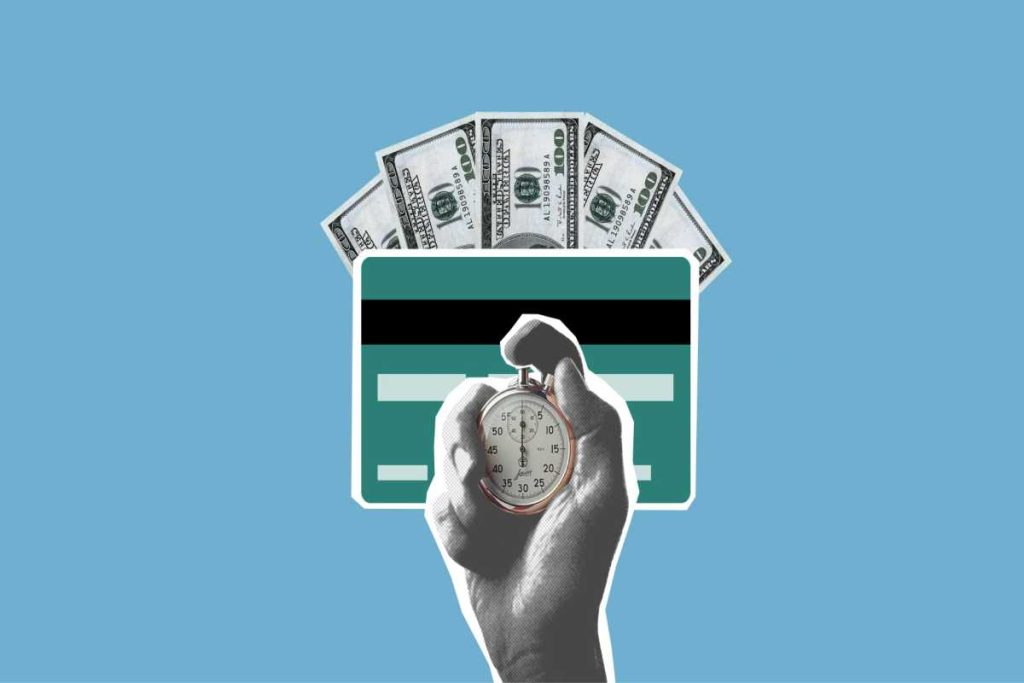Debt can often feel like a necessary evil in our lives. It serves as a financial tool that helps us achieve various goals, such as funding education, purchasing a home, or managing unexpected expenses. In many cases, borrowing money can provide immediate relief or access to opportunities that would otherwise be out of reach.
However, while some debt can be beneficial, carrying too much of it can lead to serious consequences that not only affect your financial stability but also your overall happiness and well-being.
Living with significant debt can create a heavy emotional burden. The constant worry about meeting monthly payments, interest rates, and potential financial crises can lead to stress and anxiety.
Over time, this mental strain can seep into every aspect of your life, affecting relationships, work performance, and personal health.
Furthermore, the feeling of being trapped under a mountain of debt can hinder your ability to pursue your dreams or make long-term plans, leading to a sense of hopelessness.
In this blog, we will explore 15 reasons why debt can weigh you down and impact your life in significant ways. By understanding these consequences, you can better navigate your financial journey and make informed decisions about borrowing and managing debt.
Let’s delve into the various aspects of debt and uncover how it can affect your life both short-term and long-term.
1. Financial Stress

Debt is a leading source of financial stress for many people. The constant worry about making monthly payments and managing interest rates can take a toll on your mental health. This stress can manifest in various ways, such as anxiety, insomnia, and even physical health issues like high blood pressure.
Impact: This emotional burden can spill over into your personal life, affecting relationships and diminishing your overall quality of life. Finding strategies to manage this stress—like creating a budget or seeking financial advice—can help ease the pressure.
2. High Interest Rates
Many forms of debt, especially credit cards, come with high-interest rates. If you’re carrying a balance, those interest charges can accumulate quickly, making it feel impossible to get ahead. For example, credit card interest rates can soar above 20%, turning a simple purchase into a much larger debt over time.
Impact: High-interest debt can create a cycle where you’re only making minimum payments, and the principal never seems to go down. Consider exploring options like debt consolidation to reduce interest rates.
3. Limited Financial Freedom
Debt can severely restrict your financial freedom. With a significant portion of your income going toward debt repayments, you may find it challenging to save for emergencies, invest in opportunities, or even enjoy life’s little pleasures, like dining out or traveling.
Impact: This limitation can make you feel trapped, as if you’re working just to keep up with bills rather than moving forward. Establishing a budget that prioritizes savings and cutting unnecessary expenses can help you regain some of that freedom.
4. Negative Impact on Credit Score

Your credit score is a vital part of your financial health, influencing your ability to secure loans and favorable interest rates. High debt levels can lower your score, especially if you’re utilizing a large portion of your available credit. A poor credit score can lead to higher costs for loans and insurance.
Impact: A low credit score can limit your financial opportunities for years. Focus on paying down debt, making timely payments, and keeping credit utilization low to improve your score.
5. Difficulty in Achieving Financial Goals
Debt can be a major obstacle to reaching significant financial milestones, such as buying a home, saving for retirement, or funding your child’s education. The longer you carry debt, the harder it may become to achieve these goals, leading to feelings of frustration.
Impact: This can create a cycle of regret, where you feel like you’re always waiting for a better financial moment. Set clear financial goals and develop a plan to pay down debt to stay focused on what truly matters.
6. Risk of Bankruptcy
When debt spirals out of control, bankruptcy can start to seem like the only option. However, bankruptcy comes with long-lasting consequences, including damaged credit and limited access to loans. It can take years to recover financially after filing for bankruptcy.
Impact: The stigma associated with bankruptcy can also affect your self-esteem and future opportunities. If you’re struggling, consider seeking help from a financial counselor before it reaches this point.
7. Impact on Relationships
Money issues are a leading cause of conflict in relationships. Whether between partners, family members, or friends, financial stress can lead to misunderstandings and resentment. The burden of debt can create emotional distance and strain important connections.
Impact: Poor communication about financial matters can lead to increased tension. Open discussions about money and joint budgeting can help alleviate some of this pressure.
8. Opportunity Costs

When you’re focused on paying off debt, you might miss out on valuable opportunities to invest in yourself, such as furthering your education, starting a business, or even saving for meaningful experiences like travel.
Impact: Delaying or forgoing these opportunities can limit your personal and financial growth. Carefully weigh the pros and cons of taking on debt to make more informed decisions.
9. Emotional Toll
Living with debt can lead to a range of negative emotions, including shame, guilt, and hopelessness. The stress of financial struggles can seep into every part of your life, making it hard to enjoy the things you once loved.
Impact: This emotional burden can spiral into more serious mental health issues like anxiety or depression. Seeking support from friends, family, or mental health professionals can be crucial in breaking free from this cycle.
10. Increased Living Costs
Debt can lead to higher living costs, as interest payments may consume a large part of your budget. You might find yourself borrowing more just to cover everyday expenses, creating a situation where you rely on credit cards or loans to get by.
Impact: The more you borrow, the worse your financial situation can become. Develop a budget that allows for savings and managing expenses to help break this cycle.
11. Loss of Control
Carrying debt often creates a feeling of losing control over your finances. It can feel as though your financial situation is managing you rather than the other way around. This can lead to impulsive decisions, like borrowing more money to cover immediate needs.
Impact: This loss of control can lead to instability and increased stress. Establishing a clear budget and sticking to it can help you regain that control and make informed financial choices.
12. Limited Retirement Savings

Debt often forces individuals to prioritize immediate payments over long-term savings, including retirement funds. This can leave you financially vulnerable in your later years, impacting your quality of life during retirement.
Impact: Without sufficient retirement savings, you may find yourself relying on government assistance or family support as you age. Even small contributions to retirement accounts can make a significant difference over time, so start saving early.
13. Impact on Work Performance
Financial stress from debt can negatively affect your work performance. If you’re constantly worried about your finances, it can be hard to focus and stay motivated, which might lead to missed promotions or job opportunities.
Impact: Struggling at work can create a downward spiral, where financial stress leads to job insecurity, worsening your financial situation. If you’re feeling overwhelmed, seeking support through your employer or a financial counselor can provide relief.
14. Impact on Mental Health
Debt doesn’t just affect your finances; it can take a serious toll on your mental health. The constant pressure of managing debt can lead to chronic stress, anxiety, and even depression. Feeling trapped by financial obligations can diminish your overall happiness.
Impact: Poor mental health can further complicate your financial situation, as it might lead to impulsive spending or a lack of motivation to improve your circumstances. Addressing your mental well-being is crucial in managing debt effectively.
15. Generational Effects
Debt can have long-lasting effects that extend beyond your immediate financial situation. If you’re struggling with debt, it may impact your children’s understanding of money, their ability to save, and their attitudes toward borrowing.
Impact: Growing up in a financially unstable environment can lead to a cycle of poor financial habits in future generations. Teaching children about money management and the importance of living within their means can help break this cycle.
Conclusion
While some debt can be necessary or beneficial, it’s crucial to recognize the potential downsides of carrying too much. From financial stress and limited freedom to negative impacts on relationships and mental health, debt can have significant effects on your life. Understanding these consequences empowers you to make informed decisions about your finances.
By prioritizing financial literacy, responsible borrowing, and proactive debt management, you can work toward a more secure and fulfilling future—one that’s not overshadowed by the burden of excessive debt. Remember, taking control of your financial life is a journey, and every step you take brings you closer to peace of mind and financial freedom.

